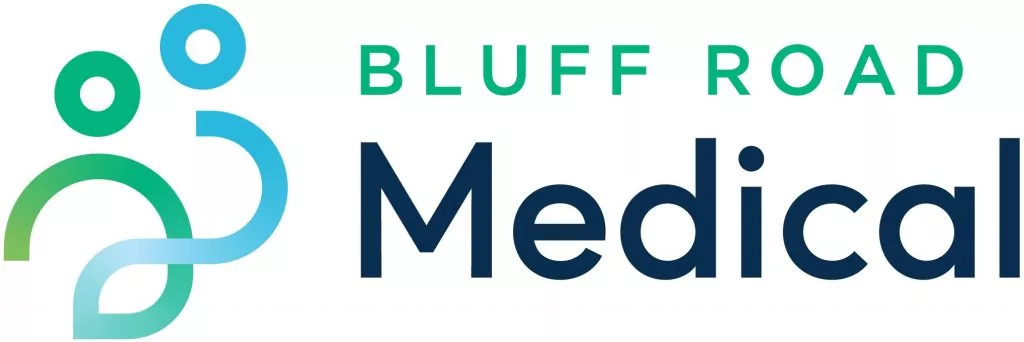Mental Health
Speak to one of the caring Psychologists to assess your situation
What is Mental Health?
According to the World Health Organization, mental health is defined as “a state of well-being in which an individual realizes his or her own potential, can cope with the normal stresses of life, can work productively and fruitfully, and is able to make a contribution to her or his community.”
Everyone strives for good mental health, however, the stresses of life can often get to us which can link to mental health problems. These problems often require the assistance of a qualified professional. However, they are usually less severe than ‘mental illnesses’.
To learn more about Mental Health, you may visit
Our Approach
Bluff Road Medical has a well-regarded psychology team offering extensive experience in helping people with psychological, emotional, and physical health difficulties. We work with our clients in a confidential, empathic, and comfortable setting. We focus on providing solutions that are individually tailored and will have a positive impact on daily life.
Psychologists utilise evidence-based therapeutic approaches, including Cognitive Behavioural Therapy (CBT), Acceptance and Commitment Therapy (ACT), Schema Therapy and more.

Qualified Psychologists
Experienced and qualified professional clinical and health psychologists

Long Term Health
We focus on long term wellness, with personal mental health care plans that enable ongoing support
Medicare rebates for psychological services
Medicare benefits are available for a range of specified psychological services. To be eligible to receive psychological services under Medicare, a person must be referred by his or her GP and in some instances by another medical specialist. Please speak to your GP to further assess your Medicare eligibility and enable a suitable clinical referral.
To review the fees for Mental Health Care Plan – Initial and Review with your GP please head to our Fees section. Fees
Make an appointment with Bluff Road Psychology
With modern rooms in Bayside, we welcome you to make an appointment with one of our highly experienced psychologists to help understand and provide guidance on your immediate mental health needs. Click below to book an appointment.
Types of Mental Illness

Anxiety disorders are the most common type of mental health disorder diagnosed in Australia affecting around 14% of Australians every year. While anxiety is usually a natural and short-lived reaction to a stressful situation, for some people anxious thoughts, feelings, or physical symptoms can become chronic, severe, upsetting, and interrupt daily life.
Severe, frequent, recurring, and persistent symptoms such as difficulty concentrating, restlessness, rapid heartbeat, trembling or shaking, feeling light-headed, sweating, and avoidance, may be considered an anxiety disorder.
The most common types of anxiety disorders include generalized anxiety disorder (GAD), obsessive-compulsive disorder (OCD), panic disorder, social anxiety disorder, and health anxiety.
Mood disorders are typically categorized by emotional disturbances involving long periods of excessive low mood (depression) and/or excessive periods of elation (mania). Depression is a common yet serious mental health issue whereby low mood and loss of interest in enjoyable activities are prolonged for a least 2 weeks or longer.
Bipolar disorder refers to cycles of extreme low and high mood. Variability in episodes is likely; some can last for 3-6 months to occurring every few years. The prevalence of the bipolar disorder in Australia is approximately 1.3% with symptoms detected in early adulthood.
Both depression and bipolar disorders interfere with daily life, work, study, relationships, and other functional activities.
Trauma is the response to a deeply distressing or disturbing event that overwhelms an individual’s ability to cope, diminishes their ability to self-regulate, and causes intense feelings of helplessness. In our lifetime, we are likely to experience a potentially traumatic life event, although most do recover with time and social support. However, for some people, the experience of trauma, or repeated exposure to trauma can lead to post-traumatic stress disorder (PTSD).
Traumatic events can include loss of control, betrayal, abuse of power, pain, and loss, exposure to actual or threatened death, serious injury, and sexual or physical violence. Emotional signs of PTSD are fear, anger, denial, or shame. Individuals affected also show symptoms of reliving the trauma, avoidance of reminders of the trauma, insomnia, nightmares, negative thoughts and low mood, agitation, and hypervigilance.
Addiction is a complex condition manifested by compulsive substance use and harmful behaviours leading to negative consequences such as losses to the relationship, employment, physical and mental health. Individuals can develop addictions to alcohol, recreation and stimulant drugs, prescription medication (e.g., opioids, sedatives), gambling and gaming.
They depend on these substances and compulsive behaviours in the short term to increase pleasure, relieve stress, enhance performance, or decrease emotional/physical pain. However, longer-term consequences include impaired control (increased craving), social and financial problems, risky behaviour, tolerance and comorbid mental health issues such as anxiety and depression.
An eating disorder is a serious mental illness defined by an unhealthy preoccupation with eating, exercise, body weight, or shape that interferes with someone’s daily life. It does not discriminate and affect people from all walks of life. The most common eating disorders are anorexia nervosa, bulimia nervosa, binge eating disorder, and other eating disorders.
There are a number of behavioral (e.g., constant & repetitive dieting, binge eating, excessive exercise, avoidance of food), physical (e.g., sudden or rapid loss of weight, loss of menstrual periods, fainting), and psychological (e.g., preoccupation with body shape, weight, distorted and negative body image, depression, anxiety around meals) warning signs.
The factors that cause an eating disorder are complex. Genetic, biological, psychological, and socio-cultural influences are all found to play a role.
Attention-deficit/hyperactivity disorder is a developmental disorder typified by a number of difficulties including paying attention, poor concentration for prolonged periods, hyperactivity, impulsive behavior, distraction, and restlessness. Both children and adults can have ADHD and the first symptoms start in childhood. Children and adolescents may find it difficult to pay attention and see tasks or activities through to the end or make careless mistakes with schoolwork or other tasks.
Children and adolescents with problems in the area of hyperactivity may talk excessively; have trouble staying still when it is appropriate or expected and act like they are always “on the go”. The prevalence of ADHD in children and adolescence in Australia is approximately 7.4% with males diagnosed twice as much as females. AHDH negatively impacts many areas of an individual’s life including work, study, and relationships.
We experience stress when there is an imbalance between the demands being made on us and our resources to cope with those demands. The way stress is experienced depends a lot on an individual’s attitude and responses to a particular situation. An event that may be extremely stressful for one person can be a mere hiccup in another person’s life.
However, if stress is ongoing and chronic, the impact of stress can have deleterious effects on physical and mental health. Physical symptoms of chronic stress include fatigue, sleep disturbance, insomnia, heart palpitations, headaches, muscular aches and pains, high blood pressure, and heart palpitations. Psychological signs of chronic stress involve feeling overwhelmed, fear, anger, worry, irritability, anxiety, helplessness, poor concentration and decreased memory.
Without treatment, stress increases the risk of anxiety, depression, burnout, and physical health problems (e.g., cardiovascular disease, diabetes, high blood pressure). Other domains of life are also impacted such as performance at work, relationships, the ability to study and to maintain a healthy lifestyle.
There is great variation in an individual’s sleep quality determined by genetic, psychological, lifestyle, and environmental factors, so that what constitutes a ‘good night’s sleep’ may be different from one individual to another. However, one of the most common sleep disorders experienced is insomnia.
Insomnia is difficulty falling asleep (onset), staying asleep (maintenance), or waking too early, despite having the opportunity to sleep well. Common side effects are persistent fatigue, low energy, reduced attention/concentration/memory, difficulties in performance-based tasks, low mood, irritability, headaches, and worrying about sleep.
Whilst the causes of insomnia is still in their infancy, research studies show that triggers can include stress and worry, significant life events, changes in routine, lifestyle factors (e.g., caffeine, alcohol, medication, obesity, sedentary behaviors), other sleep disorders (such as restless legs and sleep apnoea) and mental health issues like anxiety and depression.
If you or anyone you know needs help, click here to find a list of support lines
- Lifeline on 13 11 14
- Kids Helpline on 1800 551 800
- MensLine Australia on 1300 789 978
- Suicide Call Back Service on 1300 659 467
- Beyond Blue on 1300 224 636
- Headspace on 1800 650 890
- Relationships Australia on 1300 364 277
- Covid19 Mental Wellbeing Service 24/7 -1800 512 348
- ReachOut
- Care Leavers Australasia Network (CLAN) on 1800 008 774
- Middle South CAT Service – Monash Medical Ph: 24/7 – (03) 1300 369 012








